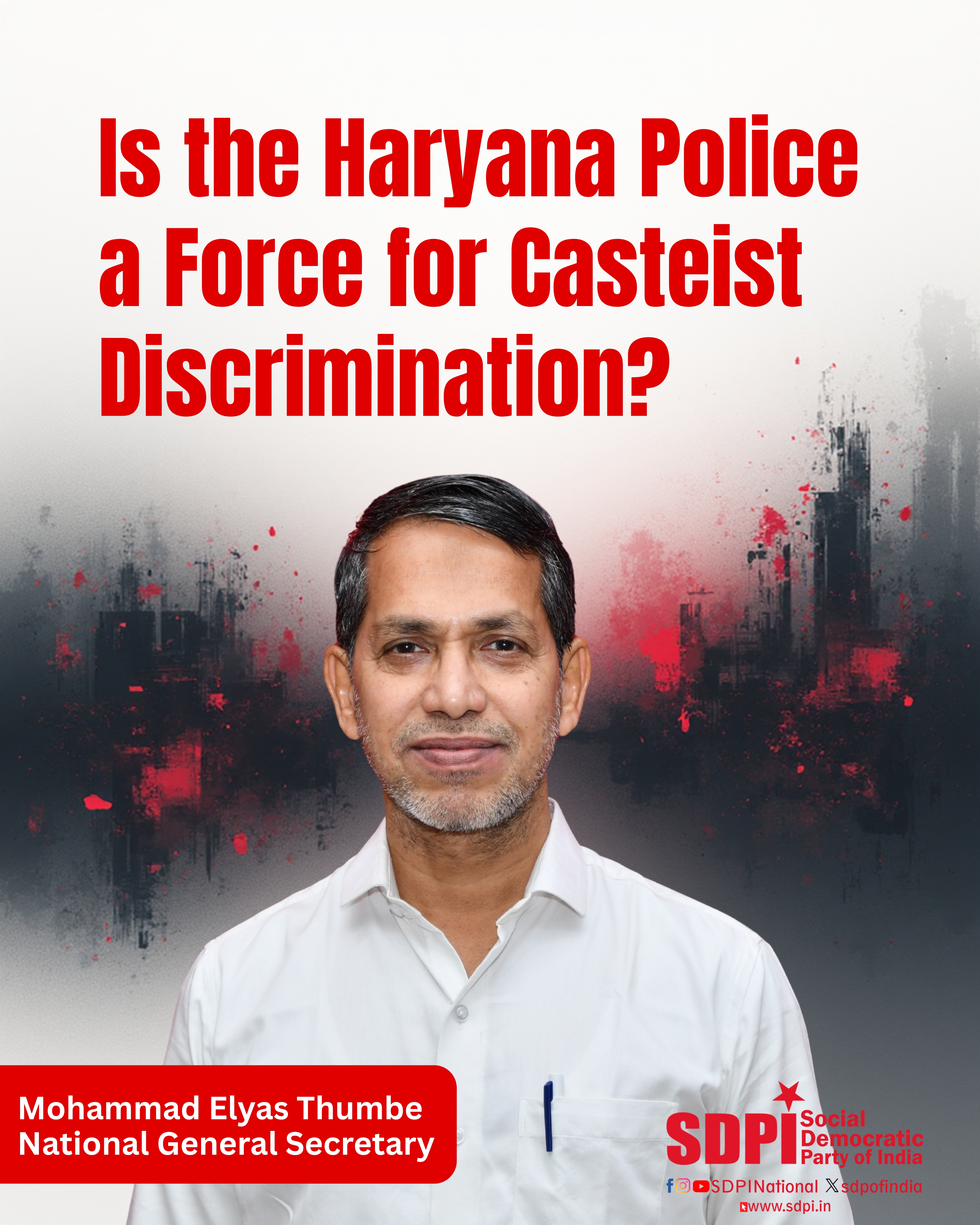
Is the Haryana Police a Force for Casteist Discrimination?
The recent deaths of two police officers in the BJP-ruled Haryana, both killing themselves leaving behind suicide notes that make serious allegations of “mental torture, caste based discrimination and public humiliation” against senior officers including the topmost official in the force, is a matter of grave concern that should put any self-respecting administration into shame and introspection.
The first incident was that of Y Puran Kumar, an Additional Director General of Police, who had shot himself at his home in Chandigarh one week ago. He had left behind a note that accused some of the top officials including the DGP of caste-based atrocities against himself driving him into suicide. Barely a week later, another officer, Sandeep Lather who was an ASI in the Haryana police, killed himself leaving behind a suicide note that accused the dead IPS officer of the same sort of caste discriminations and harassment.
The State Government has done very little to look deeper into the problems that destroy the discipline and moral strength of the police force, which appears to have become a den of corruption and caste prejudices, its officers and cadres fighting against each other. The action on the part of the government so far has been to ask the accused DGP to go on leave and transferring another officer to a different post.
But that will not solve any of the real problems that plague the Haryana police force nor save the BJP Government from its responsibility in allowing the situation to deteriorate into such tragic circumstances. Going by the media reports, it is very clear that the Haryana Government and the BJP state leadership have been promoting caste-based factionalism in the police force, playing officers against officers and top officials against lower officials, and vice versa, with ulterior motives that served their narrow political or personal purposes. It is a fact that Haryana, like Uttar Pradesh, has been a state where case equations have always played a critical role in the sharing of public resources, appointments to government positions and other important decisions on the part of the government.
The caste prejudices have been part of India’s most difficult social concerns, and the upper castes have dominated the administration, the judiciary and the executive including the police. Generally, the lower castes were at the receiving end of caste discriminations and deliberate harassments only because of the accident of their birth in a lower caste order. Anyone from these lower social orders who might end up in positions in administration are subjected to untold miseries through such deliberate acts of discrimination and harassment, sometimes driving them to desperate actions like suicide to find an escape route from the all pervasive tortures of a physical and mental kind.
The recent suicides have become a matter of fiery poltial disputes in Haryana, with the ruling and Opposition parties accusing each other of promoting caste practices. But the situation should not be treated as a matter of mere political convenience, since a conscious approach to find meaningful solutions is a must to ensure social stability and justice. With even the top officials of the Haryana Administration accusing each other and trying to score sectarian gains, we cannot claim that democracy prevails. To ensure justice, the BJP and its leadership will have to make a serious soul-searching whether its own Hindutva ideology and exclusivist politics could be one of the reasons why we are going back in times even on such basic human rights like ensuring minimum dignity for all our citizens. It is a shameful situation that we are facing in Hharyana.
Mohammad Elyas Thumbe,
National General Secretary
Social Democratic Party of India


No Comments